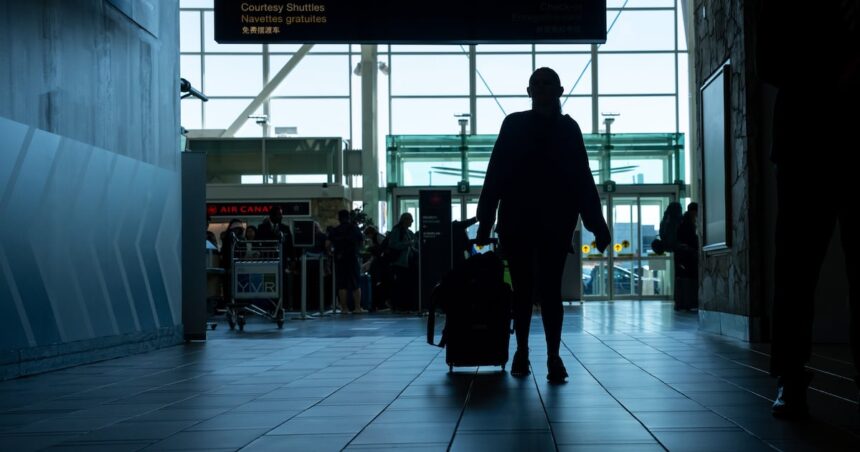The corridors between Canadian and American airports grew noticeably quieter this April, as passenger traffic dipped for the first time in months amid escalating trade frictions between the neighboring nations. Data released Thursday by the U.S. Bureau of Transportation Statistics reveals a 3.2 percent decline in air travelers from Canada to U.S. destinations compared to April 2023, representing the first year-over-year drop since pandemic restrictions were lifted.
Behind this unexpected shift lies a complex web of economic factors and diplomatic strain. The Biden administration’s recent aluminum tariffs and ongoing disputes over dairy market access have created a chilling effect that extends beyond boardrooms to airport terminals. Industry analysts point to both business travel reductions and changing vacation patterns as Canadian corporations and tourists respond to the uncertain economic landscape.
“We’re seeing a deliberate pullback in corporate travel budgets for U.S. destinations,” explains Martin Firestone, president of Travel Secure Inc., who reports multiple clients postponing or canceling American business trips. “Companies are waiting to see how these trade tensions resolve before committing to their usual cross-border schedules.”
The decline marks a significant reversal after fourteen consecutive months of growth in the Canada-U.S. air corridor. Transportation officials had projected continued increases throughout 2024, making April’s contraction particularly noteworthy. The statistics show most pronounced drops at major gateway airports including Seattle, Chicago, and New York—each recording decreases between 4.5 and 6.8 percent.
Economic implications extend beyond airlines to hospitality sectors in popular Canadian visitor destinations. Florida tourism officials report a 5.1 percent reduction in Canadian overnight stays during April, while shopping destinations in border states have noted decreased Canadian credit card transactions.
The downturn coincides with the Canadian dollar’s weakening position against the U.S. currency, creating a “double whammy” effect for potential travelers. “When you combine unfavorable exchange rates with headline news about trade disputes, many Canadians are simply choosing to explore domestic destinations instead,” notes Laura Pallotta, regional vice president for Marriott Hotels Canada.
Canadian carriers have responded swiftly, with both Air Canada and WestJet adjusting capacity on U.S. routes for the summer season. Air Canada announced a 7 percent reduction in available seat miles to American destinations compared to original projections, while maintaining full domestic schedules.
Not all sectors face equal impact. Business travel shows steeper declines than leisure bookings, though vacation traffic to sun destinations has softened as well. “Corporate travel departments are particularly sensitive to the optics of sending employees south during periods of trade tension,” explains Suzanne Bowness, chief analytics officer at Business Travel Canada.
The timing is particularly challenging for the travel industry as it continues rebuilding from pandemic disruptions. Prior to April’s data, cross-border air travel had recovered to approximately 93 percent of 2019 levels—a milestone now potentially delayed by these new headwinds.
Industry experts remain divided on whether this represents a temporary blip or the beginning of a longer trend. “Much depends on how quickly these trade issues find resolution,” says economist Patricia Hwang from the Conference Board of Canada. “Historical patterns suggest short-term trade disputes create temporary travel disruptions that normalize within two quarters.”
For travelers and businesses caught in this diplomatic crossfire, uncertainty remains the only certainty. As summer travel season approaches, both nations’ tourism and hospitality sectors will be watching closely to see if April’s downturn represents the beginning of a new pattern or merely a temporary response to headlines that may soon fade.
For more information on business developments between Canada and the United States, visit CO24 Business. Stay updated on the latest travel trends at CO24 Sports.














